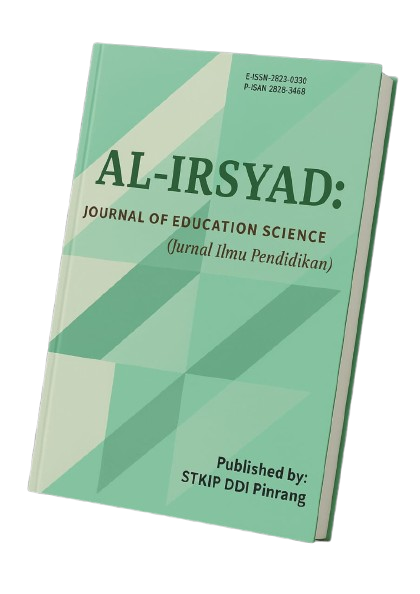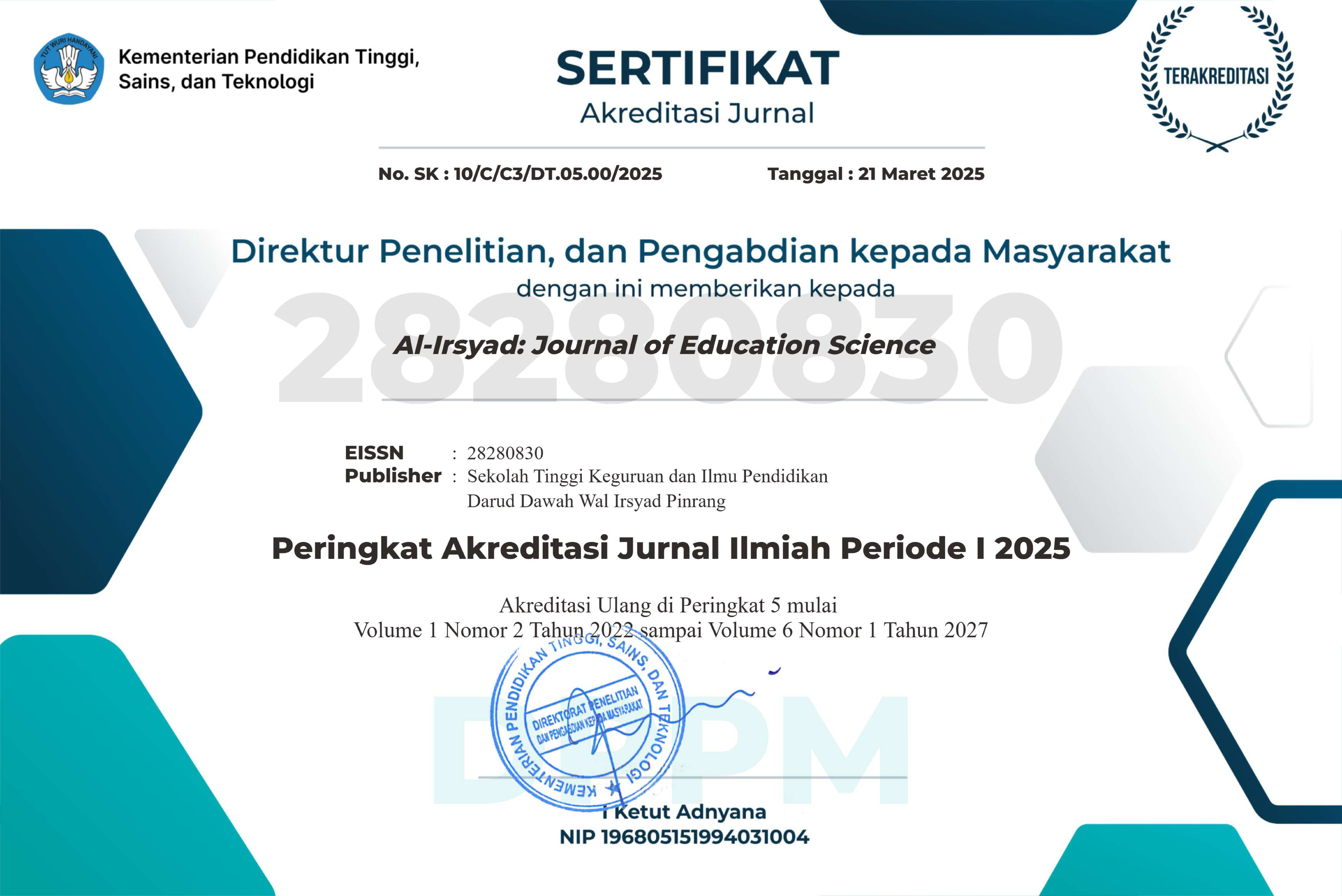THE SWOT ANALYSIS OF EFL LEARNERS’ ADAPTATION TO AI-BASED WRITING TOOLS IN ACADEMIC CONTEXTS
DOI:
https://doi.org/10.58917/aijes.v4i2.425Kata Kunci:
Academic Writing, AI-Based Writing Tools, EFL Learners, SWOT AnalysisAbstrak
The purpose of this study was to analyze the adaptation of English as a Foreign Language (EFL) learners to AI-based writing tools in academic context. Although AI-based writing tools were progressively implemented into language education, limited research has explored how EFL learners interpreted and adapted to these tools. In particular, structured frameworks are infrequently applied to comprehensively analyze this perception. The study employed a SWOT (Strengths, Weaknesses, Opportunities and Threats) analysis to investigate EFL learners’ perceptions of AI writing tools such as Chat-GPT, Grammarly, or Quillbot. Data were gathered through semi-structured interviews involving 25 university EFL students. The findings uncovered that students conceived time efficiency and instant grammar feedback as key strengths. In contrast, excessive reliance and deficiency of deep academic understanding were seen as major weaknesses. Opportunities comprised enhanced writing confidence and facilitated idea generation and structured academic writing, while threats focus on diminished critical thinking and passive plagiarism. The results emphasized the demand for ethical pedagogical strategies to guide AI integration in language education.
Referensi
Alzubi, A., Nazim, M., & Alyami, N. (2025). Do AI-generative tools kill or nurture creativity in EFL teaching and learning? Education and Information Technologies. https://doi.org/10.1007/s10639-025-13409-8.
Baker, R. (2021). Artificial intelligence in education: Bringing it all together. https://doi.org/10.1787/f54ea644-en.
Bista, K., & Bista, R. (2025). Leveraging AI tools in academic writing. American Journal of STEM Education. https://doi.org/10.32674/9m8dq081.
Farrokhnia, M., Banihashem, S., Noroozi, O., & Wals, A. (2023). A SWOT analysis of ChatGPT: Implications for educational practice and research. Innovations in Education and Teaching International, 61, 460 - 474. https://doi.org/10.1080/14703297.2023.2195846.
Fitria, T. N. (2021). The use technology based on artificial intelligence in English teaching and learning. ELT Echo. The Journal of English Language Teaching in Foreign Language Context, 6(2), 213–223. https://doi.org/10.24235/eltecho.v%vi%i.9299
Fitria, T. (2023). The Use of Artificial Intelligence In Education (Aied): Can AI Replace the Teacher's Role?. EPIGRAM (e-journal). https://doi.org/10.32722/epi.v20i2.5711.
Hosseini, M., et al. (2023). An exploratory survey about using ChatGPT in education. PLOS One, 18(10), e0292216.
Huang, Y., Wang, Y., & Chen, L. (2020). The role of AI writing tools in language learning: A review of the literature. Language Learning & Technology, 24(1), 1-15.
Jones, T., & Wilson, H. (2022). Enhancing Cognitive Skills in EFL Writing: The Role of AI Tools. Language Teaching Research.
Kasneci, E., et al. (2023). ChatGPT for good? On opportunities and challenges of large language models for education. Learning and Individual Differences, 103, 102274.
Lam, R., & Moorhouse, B. (2022). Using Digital Portfolios to Develop Students’ Writing. https://doi.org/10.4324/9781003295860.
Lo, C. K. (2023). What is the impact of ChatGPT on education? A rapid review of the literature. Education Sciences, 13(4), 410.
Malik, A., Pratiwi, Y., Andajani, K., Numertayasa, I., Suharti, S., Darwis, A., & , M. (2023). Exploring Artificial Intelligence in Academic Essay: Higher Education Student's Perspective. International Journal of Educational Research Open. https://doi.org/10.1016/j.ijedro.2023.100296.
Mohammadkarimi, E. (2023). Teachers’ reflections on academic dishonesty in EFL students’ writings in the era of artificial intelligence. Journal of Applied Learning & Teaching. https://doi.org/10.37074/jalt.2023.6.2.10.
Safitri, M., & Fithriani, R. (2024). Exploring Higher Education EFL Students’ Perception of AI Writing Tools in the 5.0 Era. Cetta, 7(1), 267–276. https://doi.org/10.37329/cetta.v7i1.3158
Salvagno, M., Taccone, F. S., and Gerli, A. G. (2023). Can artificial intelligence help for scientific writing? Crit. Care 27:75. https://doi.org/ 10.1186/s13054-023-04380-2.
Selim, A. (2024). The Transformative Impact of AI-Powered Tools on Academic Writing: Perspectives of EFL University Students. International Journal of English Linguistics. https://doi.org/10.5539/ijel.v14n1p14.
Selwyn, N. (2022). The future of AI and education: Some cautionary notes. European Journal of Education. https://doi.org/10.1111/ejed.12532.
Smith, R. (2023). The Influence of AI on Academic Writing in EFL Contexts. International Journal of Education and AI.
Smith, H., Raja, S., & Williams, A. (2025). Artificial Intelligence in Academic Writing: Opportunities and Risks from Planning to Publication. Journal of the Best Available Evidence in Medicine. https://doi.org/10.63720/jqz1pdhl.
Song, C., & Song, Y. (2023). Enhancing academic writing skills and motivation: assessing the efficacy of ChatGPT in AI-assisted language learning for EFL students. Frontiers in Psychology, 14. https://doi.org/10.3389/fpsyg.2023.1260843.
Tram, N., et al. (2024). ChatGPT as a tool for self-learning English among EFL learners: A multi-methods study System. https://doi.org/10.1016/j.system.2024.103528.
Virlan, A., & Tomak, B. (2024). A Q method study on Turkish EFL learners’ perspectives on the use of AI tools for writing: Benefits, concerns, and ethics. Language Teaching Research. https://doi.org/10.1177/13621688241308836.
Widiati, U., Rusdin, D., Indrawati, I., , M., & Govender, N. (2023). The impact of AI writing tools on the content and organization of students’ writing: EFL teachers’ perspective. Cogent Education, 10. https://doi.org/10.1080/2331186X.2023.2236469.
Zhang, Y., et al. (2023). Ethical Concerns in the Use of AI Writing Assistants in Academic Settings. Educational Technology Research and Development.
Zhao, X. (2022). Leveraging artificial intelligence (AI) technology for English writing: introducing Wordtune as a digital writing assistant for EFL writers. RELCJ. 89:10940.https://journals.sagepub.com/doi/10.1177/00336882221094089
Unduhan
Diterbitkan
Cara Mengutip
Terbitan
Bagian
Lisensi
Hak Cipta (c) 2025 Muawwal Al As Ary, Misnawati Usman, Ita Sarmita Samad, Sry Wahyuni

Artikel ini berlisensi Creative Commons Attribution 4.0 International License.























